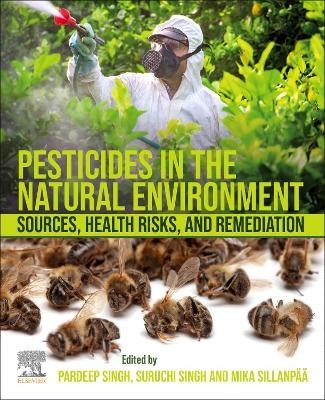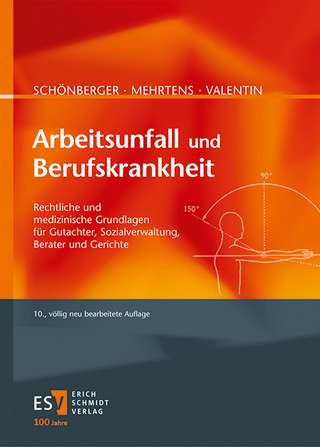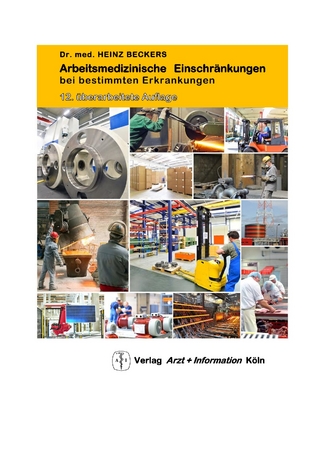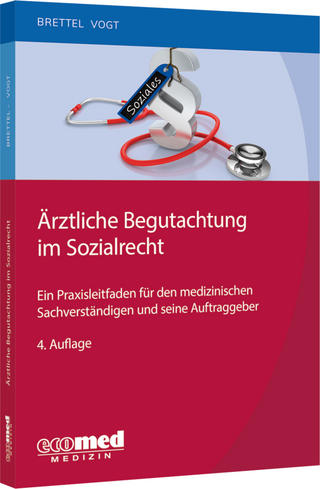
Pesticides in the Natural Environment
Elsevier - Health Sciences Division (Verlag)
978-0-323-90489-6 (ISBN)
Dr Pardeep Singh is presently working as an Assistant Professor at the Department of Environmental Science, PGDAV College, University of Delhi, India. He obtained his master's degree from the Department of Environmental Science at Banaras Hindu University, Varanasi India in 2011. He obtained his doctorate from the Indian Institute of Technology (Banaras Hindu University) Varanasi in the year 2017. The area of his doctoral research is the degradation of organic pollutants through various indigenous isolated microbes and by using various types of photocatalytic. He has published more than 35 papers in international journals in the field of waste management. Dr. Suruchi Singh is presently working as Faculty in the Department of Botany, Sunbeam College for Women, India. She obtained her PhD from Banaras Hindu University, India in Botany with Environmental Science as major field. Dr Singh received her postdoctoral experiences in Department of Botany, Banaras Hindu University under Council of Scientific and Industrial Research and Department of Science and Technology. She has published articles in various international journals and books series (>40 peer reviewed articles). In her research, she has identified processes and activities where environmental efficiencies of selected crop plants must be increased against UV-B and tropospheric Ozone. Mika Sillanpää’s research work centers on chemical treatment in environmental engineering and environmental monitoring and analysis. The recent research focus has been on the resource recovery from waste streams. Sillanpää received his M.Sc. (Eng.) and D.Sc. (Eng.) degrees from the Aalto University where he also completed an MBA degree in 2013. Since 2000, he has been a full professor/adjunct professor at the University of Oulu, the University of Eastern Finland, the LUT University, the University of Eastern Finland and the University of Johannesburg.
Chapter 1: Classification of pesticides and loss of crops due to creepy crawlers
Chapter 2: Ecological impacts of pesticides on soil and water ecosystems and its natural degradation process
Chapter 3: Fate and assessment of pesticide in aquatic ecosystem
Chapter 4: Fate and adverse effects of pesticides in the environment
Chapter 5: Towards understanding the impact of pesticides on freshwater ecosystem
Chapter 6: Persistence of pesticides and their impacts on human health and environment
Chapter 7: Complex approaches to assessing the pesticides risk on human health and environment
Chapter 8: Neurodevelopmental and reproductive impacts of pesticides on pregnant women
Chapter 9: Pesticides and human health: The noxious impact on maternal system and fetal development
Chapter 10: Сytogenetical bioindication of pesticidal contamination
Chapter 11: Modulation of soil microbiome and related alterations in response to pesticides
Chapter 12: Botanical pesticides as alternatives for more sustainable crops and healthy foods
Chapter 13: The potential use of essential oils as natural biocides against plant pathogens
Chapter 14: Sustainable and eco-friendly alternatives to reduce the use of pesticides
Chapter 15: Strategies for sustainable and ecofriendly pest management in Agroecosystem
Chapter 16: Pesticides removal from aqueous streams through anaerobic and aerobic biological treatment processes
Chapter 17: Metal organic frameworks for the removal of pesticides
Chapter 18: Removal pesticides by advanced techniques based on nanomaterials
Chapter 19: Pesticides removal techniques from the aquatic environment
Chapter 20: Perspective of sustainable and intensified developments in treatment of pesticides from aqueous streams
Chapter 21: Biomonitoring and biomarkers of pesticide exposure and human health risk assessment
| Erscheinungsdatum | 03.05.2022 |
|---|---|
| Verlagsort | Philadelphia |
| Sprache | englisch |
| Maße | 191 x 235 mm |
| Gewicht | 450 g |
| Themenwelt | Medizin / Pharmazie ► Medizinische Fachgebiete ► Arbeits- / Sozial- / Umweltmedizin |
| Naturwissenschaften ► Biologie ► Biochemie | |
| Naturwissenschaften ► Biologie ► Ökologie / Naturschutz | |
| ISBN-10 | 0-323-90489-0 / 0323904890 |
| ISBN-13 | 978-0-323-90489-6 / 9780323904896 |
| Zustand | Neuware |
| Haben Sie eine Frage zum Produkt? |
aus dem Bereich


